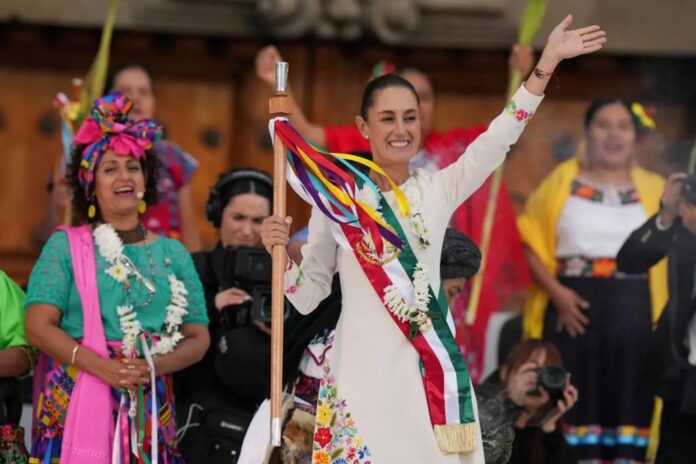Claudia Sheinbaum, who became Mexico’s first female president on Oct. 1, 2024, has been a prominent figure both politically and academically. With impressive credentials in science, she presents a figure of considerable influence. However, her political approach and controversial affiliation with the Morena party brings into question whether her leadership will fix societal gaps or deepen divisions.
Sheinbaum holds a Bachelor’s degree in physics, and a Master’s and PhD in energy engineering from the National Autonomous University of Mexico (UNAM), one of Mexico’s most prestigious universities. She has received numerous academic recognitions and has many published works, including two books on energy, the environment, and sustainability. In 2007, the Intergovernmental Panel on Climate Change (IPCC) was awarded the Nobel Peace Prize, and Sheinbaum was included among the academics and researchers who contributed to the panel. In politics, she has served as both the Head of Government and Secretary of Environment for Mexico City, where she was responsible for projects such as introducing the Metrobus and promoting cycling infrastructure.
Despite her academic background and focus on science and sustainability, not all of Mexico celebrates her victory in the elections. Sheinbaum is a member of the Morena political party, a party that has divided social classes through policies. This ideology was also promoted by Andres Manuel López Obrador, Mexico’s former president and member of Morena. However, the upper class remained mostly unaffected, as many politicians, including the president, are part of this group.
Morena has also been accused of vote buying by offering groceries to communities in exchange for political support. Along with their divisive ideology, this has worsened Mexico’s poverty problem, as neither Sheinbaum nor Morena have made meaningful efforts to address the causes of poverty. Instead, they focused on providing goods and groceries every once in a while. Additionally, while serving as governor of the State of Mexico, Sheinbaum was accused of oppressing feminist activists, labelling them as “racist and classist.”
Sheinbaum’s legacy is seen in two contrasting lights: those who align with Morena or have benefited from their projects support her presidency, holding high expectations for her ability to bring change. Conversely, many Mexicans, particularly those opposed to Morena’s policies, remain skeptical. Their concerns stem from issues that worsened during López Obrador’s presidency, such as corruption, poverty, and violence, among many others, leaving them uncertain whether Sheinbaum’s presidency will truly address the nation’s long-standing problems.


